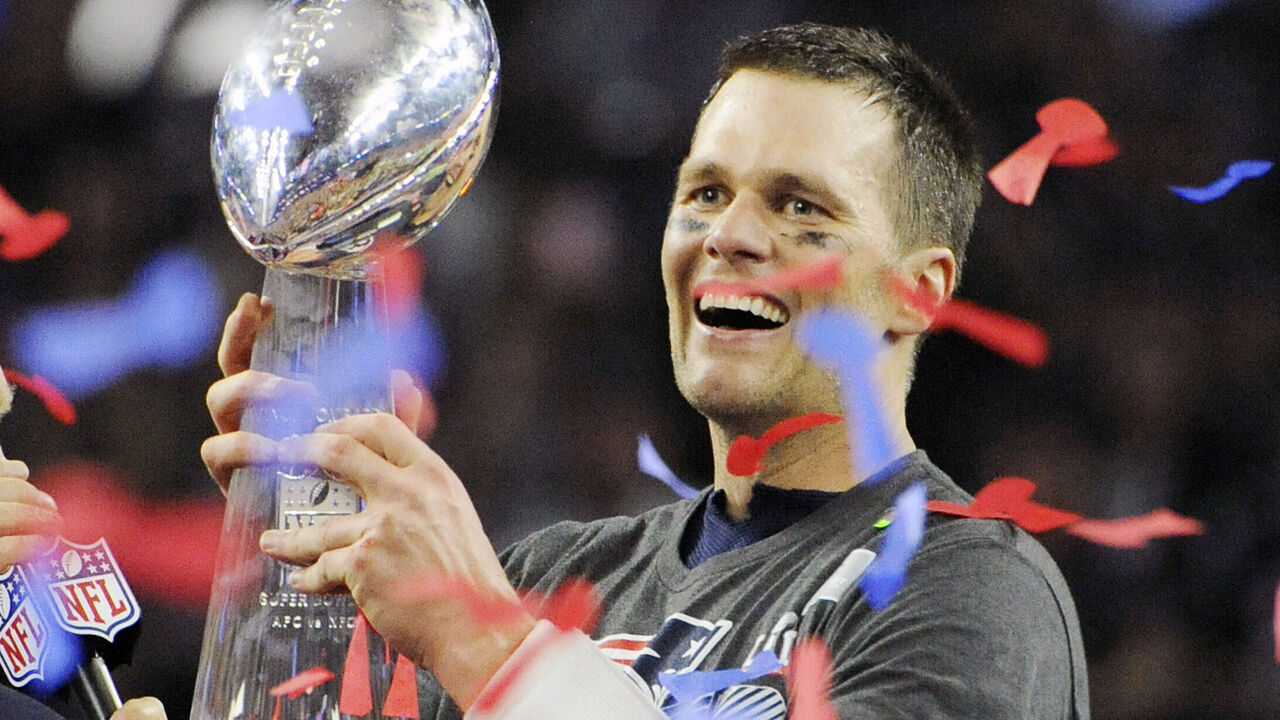Brady needs to be a star in TV gig, not a game manager
Tom Brady's aware of the criticism.
"Naturally you hear different things on social media and such," he told reporters in New Orleans this week at the Super Bowl.
"I understand I am a long way from a finished product as a broadcaster, but I really enjoy the opportunity."
Earlier in the week, the rookie analyst said via his newsletter that in his initial games this season, "All of the information that was assaulting my sense every 40 seconds had the effect of separating my mind from my mouth. It was too much, too quickly, too soon."
All of this makes a lot of sense. Brady's major contribution to his broadcasts in the first weeks was awkward silence, which pairs with the idea he was a little paralyzed while soaking in all he was seeing.
A live broadcast is like the swimming duck analogy: the picture of serenity floating above the water, but furiously paddling underneath. Of course it was going to take some time for the game's most accomplished quarterback to adjust to a new job a year after retirement.
But it also only adds to the confusion about one of the stranger sports-media decisions in history. Why did Fox Sports decide they absolutely had to have a completely inexperienced broadcaster - and one who wasn't particularly chatty in his playing days - in their top booth? Why did they pay him such an enormous salary? At $37.5 million per year, he's paid more than the combined salary of Troy Aikman and Joe Buck in the Monday Night Football booth, and making significantly more than he ever made in any season in his remarkable playing career.
Perhaps more to the point: Why does Fox have the biggest sporting event of the year being broadcasted by someone who, by his own admission, still has training wheels on?
The short answer appears to be: because they can. Which is also basically the long answer, too.
A recent piece in The Athletic explored the question of why Fox executives were compelled to give Brady a $375-million deal before he'd even finished playing. And 2,000 words later, the explanation remained fuzzy. Brady's said to be willing to schmooze partners and sponsors, but there's a finite amount of commercial inventory to be sold, and NFL games, which typically include something like 85 of the top 100 U.S. television programs in a given year, are the hottest of properties anyway.
And for all of Brady's celebrity, the people in the broadcast booth don't drive ratings. This year's NFC Championship Game on Fox, with Brady and Kevin Burkhardt calling it, had a ratings drop of 21% from the same window last season. It was the lowest-rated NFC title game since 2018, per Front Office Sports.
Brady's certainly improved at the gig over the course of the season, although how much is subjective. Where he was oddly quiet in those early weeks and often just described what he was seeing on a replay, he's figured out ways to offer insights, such as pointing out during these playoffs that Eagles quarterback Jalen Hurts was waiting a beat too long to attempt big-play throws. Brady said that sometimes a quarterback has to let it rip as soon as he sees an opening; if you wait to see how the play develops, the window might close. He would know.

But Brady rarely offers his thoughts on his own big-game performances, which would seem to be the whole point of having him there. That NFC title game included the Eagles, a team Brady played twice in the Super Bowl, and the Commanders, coached by Dan Quinn, who had the same role with the Atlanta Falcons when Brady authored his greatest moment, the comeback from 28-3 down in Super Bowl LI.
There were plenty of opportunities for Brady to draw on his own experiences against some of these same players and coaches - what do the Eagles do differently now? How did he approach trying to overturn a big deficit? - but instead he's trying to do the same kind of analysis as Mark Sanchez or Daryl Johnston.
If the point of having Brady in the booth isn't to exploit his unprecedented degree of playoff experience - his inherent Tom Bradyness - then why not just stick with Greg Olsen? Why spend all that money for someone who may eventually be better?
And, again, because they could. All parties say they're determined to stick this out, even as Brady's taken an ownership stake in the Las Vegas Raiders and had restrictions placed on him by the league that don't apply to any other color analyst.
There's every reason to believe he'll improve. Brady was infamously a game-manager in his early playing days in New England and retired as a master of all he surveyed, leading the league in completions even at 45 years old. He says he intends to keep working at the craft and get better every year.
And if he, or Fox, or both parties, instead decide the arrangement's no longer workable? That's fine, too. People will still watch the games.
Scott Stinson is a contributing writer for theScore.